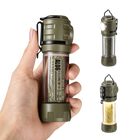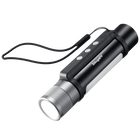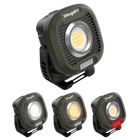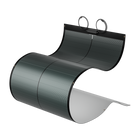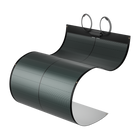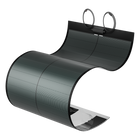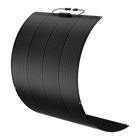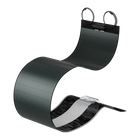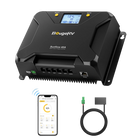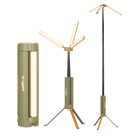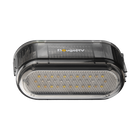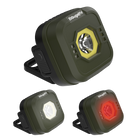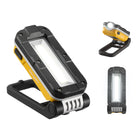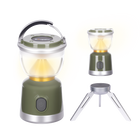How to Add a Second Battery to Your Boat: Step-By-Step Instructions


There’s nothing like the open water. That’s why millions of Americans own boats. But when you’re out on your boat, you need enough reliable power to meet your energy demands. If you don’t have enough power, you may consider adding a second battery to your boat.
That’s why we’ve made this guide. It takes an in-depth look at the process of adding a battery to your boat with step-by-step instructions, tips, and more. So, without further delay, let’s get into it.
How Do Boat Batteries Work?
The first thing you should know, if you don’t already, is that boats tend to have separate batteries for their starters and on-board energy demands. This is done to ensure that you don’t accidentally drain your starting battery and get stranded.
If you’re thinking about adding a second battery to your boat, it will likely be to increase your onboard energy supply. There are times when you may need to replace your starter battery, but that’s not the purpose of this guide, so you may need to look elsewhere if that’s your goal.
Why Would You Want to Add a Second Battery to Your Boat?

It makes sense to increase your boat’s power supply by adding a second battery in two different situations.
The first is if your current setup has only one battery that’s shared between starting the engine and running your gear while you’re on the water. As mentioned previously, you don’t want that, so adding a second battery would be a smart idea.
The second scenario in which you may want to add another battery to your boat is if you have a dedicated battery for onboard power, but it’s not meeting your energy needs. In that case, you could consider either replacing the battery with a new one or adding a third battery to your boat and wiring it together with your existing house battery.
One of the key advantages of adding a second battery to your boat is the potential it offers for solar energy. You can connect a new battery to solar panels so that you generate free energy while you’re out with your boat. This can increase the overall power you have access to by quite a bit when you boat on sunny days.
How to Add a Second Boat Battery?
Now that we know how boat battery systems work and the scenarios in which you might need to add to your current setup, let’s dive into specific instructions for the process.
We’re going to split these into two categories based on the scenarios outlined in the previous section. Follow the first set of instructions if your boat currently only has a starting battery. Follow the second set of instructions if it already has a second battery for onboard power but it’s not currently meeting your needs.
Adding a Second Battery to Your Starter Battery
If you only have one battery on your boat, your goal in adding a second battery is to give yourself a separate source for onboard power.
The first step in that process is turning off all of your electrical systems. This is really important because you risk seriously injuring yourself if you try to work with active electrical currents running through your boat’s battery system.
Once you’ve done that, you can get started with the following steps.
1. Choose a battery switch
First – you need a battery switch. This should be at least a dual battery switch, which essentially allows you to easily switch back and forth between each battery on your boat. That way, you can use the starter battery for starting your engine and the other battery for onboard power once you get going. You can hold off on installing this for now.
2. Choose a second battery
Now you need to choose the second battery that you want on your boat. It should be powerful enough to meet your energy demands. If you don’t know what those are yet, consider the appliances and electronics that you want to be able to use with it. You can add up the watt-hour demands of those devices and consider the number of hours that you want to be able to use each of them on your boating expeditions.
For example, you might want to be able to power your radio for at least 8 hours. The radio should have a watt-hour rating. This tells you how many watts it takes to run per hour.
You can multiply that by eight to figure out how much energy the battery would need to provide to power the radio for eight hours. If you don’t know the watt-hour demands of your appliances, you can look them up online by entering the model number into the manufacturer’s website or with a standard Google search.
3. Add the battery switch to your boat in a convenient location
Now we’re ready to get started with our installation. We’ll begin by installing the battery switch on the boat.
Choose a convenient location for this so that it’s easy to switch back and forth between batteries on demand. You typically need at least four to six inches of space.
Typically the battery switch that you purchase will come with instructions for adding it to your boat. Follow these, and don’t worry about hooking up the wiring just yet. You’re going to need to install the second battery before you can finish that part of the job.
4. Connect positive cables first

Now we’re ready to install your battery. Be sure to use marine-graded cables to avoid damage.
The first step in the process is connecting the positive terminals of your existing boat battery to the positive terminals on the new battery. Once you’ve done that, you will want to connect the corresponding wires to your new battery switch on the output port.
5. Connect negative cables last

All that’s left to do now is to follow the same process for the negative cables on the battery. Connect the negative cables on your existing battery to the negative cables on your new one. Then, connect the negative cable lug from the engine/ground and connect this all to your battery switch in the appropriate locations.
Adding a Third (Or Fourth) Battery to Your Boat

Maybe you already have a second battery on your boat but you’re interested in adding another to increase your power capacity. That process is fairly straightforward. Remember, turn off all electrical systems before proceeding. You don’t want to put yourself at risk unnecessarily.
You’ll want to mount your second or third boat battery as close to your existing one as possible. Then, connect them in a parallel fashion, just like we showed you how to do in the previous section (positive to positive, negative to negative).
That’s basically it. You may also need to hook up the third or fourth battery to your battery switch. Also, if you’re planning on doing this, you may want to consider investing in a four-position boat battery switch instead of a two-position one. That way, you can choose to use whatever battery you want at any time.
Replacing an Old Boat Battery With a New One
You may be wondering if the instructions for this process change at all if you’re planning on replacing an old second boat battery with a new one. But they really don’t. You just need to make sure that you remove the old battery before adding the new one.
This process will likely be as simple as disconnecting a few wires and potentially unscrewing a few screws. But don’t try to do that until you’ve turned off the power to your ship. Trying to remove a boat battery while the ship’s electrical systems are active could be deadly.
Getting the Most out of Your New Boat Battery
Now that you’ve installed your new battery, it’s worth taking a look at a few tips to ensure you’re getting as much out of it as possible. Here are several to consider.
First, make sure that you put a lid on the battery box or boots on your battery terminals. This will help to prevent short circuits by keeping the critical components of the battery covered and safe from accidental damage.
You should also make sure that you keep your boat’s battery compartment ventilated. Gases can sometimes escape from batteries, which can be explosive and dangerous. This is most common with lead-acid batteries, so you may want to consider a solar battery instead if that’s a concern for you.
Finally, make sure that you clean the tops of your boat batteries as part of your routine servicing process. Dirty batteries are less effective and may become dangerous. If you notice white powder building up on your terminals, clean it off with a baking-soda solution. This will neutralize any acid in the white powder and ensure that your batteries are operating at their maximum efficiency.
Summary of Adding a Second Battery to Your Boat

The bottom line of adding a second battery to your boat is that it’s a simple enough job you can do on your own. Just choose a boat battery switch and a battery, then follow the instructions we’ve included above to get the job done.
If you’re interested in taking advantage of solar power while you’re out on the water, BougeRV can help. We sell everything you need to do so, from batteries to solar panels.
Take a look at our solar power shop to learn more now!
Adding a Second Battery to Your Boat FAQs
1. Can you add a second battery to your boat by yourself?
Yes, you can absolutely add a second battery to your boat on your own. The process is as simple as connecting a few wires and potentially installing a boat battery switch if you don’t have one already.
2. How much does it cost to add a second battery to a boat?
This depends on the cost of the batteries that you want to add, as all other costs are largely negligible. Batteries can range in price from a few hundred dollars to more than $1,000. It depends on the amount of capacity you want and the brand you buy from, among other factors.
3. Is it safe to add a second battery to a boat?
Yes, it’s safe to add a second boat battery, but you have to turn off all electrical systems on the boat before getting started with the job. Otherwise, you’re risking serious injury.










